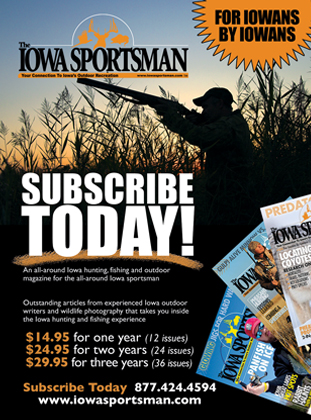Avoid the Bust: Select the Right Outfitter
Avoid the Bust: Select the Right Outfitter
By Ryan Eder
Sometimes as a writer I struggle to find new topics to discuss in an article. This month, however, my inspiration came easily as I had arguably the worst waterfowl hunting experience with an outfitter this season. Selecting an outfitter can be difficult; there are several to choose from and if you do not do the preliminary research it is quite easy to make a poor decision. This subject has been written about and discussed countless times, but it is such a tough topic to sort out. We all opt to use guides and outfitters for different reasons; not having access to hunting land or water, not having the expertise, equipment or resources or maybe we just simply want to travel somewhere different and get an experience. Regardless of why we choose to hire a guide or outfitter we always have high expectations of success in the field. Naturally, when you pay for something you want to obtain maximum utility and enjoyment from it. Just to clarify, however, hunting is hunting. Success in the field can never be guaranteed, but in my opinion it is an outfitter’s responsibility to put clients in the best position possible to succeed.
Before we touch on a few things to consider when selecting your next guided hunt, let me share a few details about my terrible experience with our outfitter this duck season. Living in the Midwest, we are avid waterfowl hunters. Our area is fantastic for ducks and geese either on water or in the field. This year we wanted a new experience, and flooded rice fields in the boot heel of southeast Missouri in late November sounded great. Trying to not break the bank, we found an option that offered “self-guided” hunts, meaning we would be responsible to supply our decoys, mojos, gear, dogs and so forth. This option allowed us to save some money, and still use the amenities of a nice lodge for dwelling and meals.
Here come my first words of caution; make sure the outfitter defines “self-guided” the same way you do. To me self-guided means that the clients provide their own gear and require nothing more than a location to hunt (field, pond, blind etc.). Additionally, a self-guided hunt is still costly for a group of hunters and does require service from the guide or outfitter; particularly when it comes to scouting, prepping the field and so on. As I mentioned above, it should be an obligation of the outfitter to put clients in the best position possible to succeed in the field. Our guide did not even take us to our blind the first morning we arrived. He had one of the kitchen staff members lead us to a field, point to it out the car window and say “there is your field, good luck”.
Not thinking much of it, we got all the gear to the blind, set up our spread, spruced up the blind cover and began our hunt. 10 hours later, not one duck had flown by. Meanwhile, other clients who paid for a guided hunt were posting pictures all over social media that they were shooting their limit of ducks before lunch time. Once again, no guide can control nature, and there is never a guarantee, but when we returned for supper we heard the staff discussing our poor luck that day one of them said “we should have flooded the field a lot sooner than last night”! Hearing that put us all in a state of shock. This outfitter took our money, flooded a field less than a day before we arrived and simply stuck us in a blind to test our fate. On one hand, this is hunting and I’ll take a day in a duck blind with my dog and friends over a day at the office anytime. On the other hand, we paid a lot of money to experience a new type of duck hunting, and to hear that our outfitter did not scout our location or prep it for at least several days prior to our arrival, and did nothing to put us in a position to succeed, you can imagine our disappointment.
When we confronted the outfitter with our frustration his response was “you paid for a self-guided hunt, we do not do anything for that we just put you somewhere to try your luck”. Some may disagree with me, but that is unacceptable in my opinion. First lesson, make sure both parties agree on what “self-guided” entails. In our situation, we paid premium dollar and therefore expected some level of service. The guide never checked on us in our blind, texted or called to hear how we were doing, he essentially acted as if we did not matter. A quality outfitter is never not-concerned about the success of their clients, period.
Take a Look at Their Website
Amenities aside (everyone has different preferences on an outfitter that offers lodging or meals), let’s discuss a few ways to do proper research on a potential outfitter for your next hunting trip. With the internet and social media, this is fairly easy to do on virtually every outfitting operation out there. The first step is to look at their website. Their experience and success levels should be very evident; with well-written content and plenty of photos and/or videos documenting successful hunts. Try to pay attention to the photos; are they documented with dates? Does the outfitter show continuous success on a daily or weekly basis? Several outfitters have only a few “glory hunts” and share several pictures of them to appear more successful than they are. Again, you can never guarantee success but the outfitters that get on the target species more often do show higher potential for success.
How Much Access to Hunting Locations Do They Have?
Another element to consider; what resources does this outfitter offer? Do they have access to several hunting locations? Our outfitter in Missouri only had one good spot that was managed for duck hunting, and that was only used for guided clients. We were stuck in a random location that he had found a day or two prior to our arrival. If the website does not clarify what kind of access the outfitter has to hunting locations, be sure to ask via email or phone. There is something to be said for having options. If your hunt is slow, can your guide get you to another location to help your chances? While not every outfitter has this capability, it is preferable to have an outfitter that has access to several spots that they can scout and prepare for maximum success in their hunts.
Is the Outfitter Properly Equipped?
Make sure that you can tell if the outfitter is equipped to provide the best possible service. In our case, we chose to supply our own gear, but if you want to be guided in full, make sure they can do so. I have seen cases where customers leave angry because a guide service did not have adequate equipment to provide quality service. An example would be not having some kind of ATV or vehicle to get your equipment to the middle of a flooded field. Another example would be not having adequate decoys for the conditions. Imagine duck hunting in late winter where you need to break ice or possibly keep water from freezing over. I have heard of outfitters that did not have chain saws or ice eaters to keep water open for clients. Of course I am referencing waterfowl hunting, but this needs to be a consideration for any type of guided hunt you consider.
Try to keep these things in mind as you look for your next guided hunt experience. While there is no such thing as guaranteed success in the field, there is such a thing as top quality service and an outfitter that goes above and beyond to maximize your chances. In several cases, exceptional service does not even cost more; it is just a matter of you finding the right service. Taking the time to evaluate a website; look at the content and make sure the outfitter has the experience, expertise and resources to provide adequate service. It could be the difference between great memories or a miserable experience.

